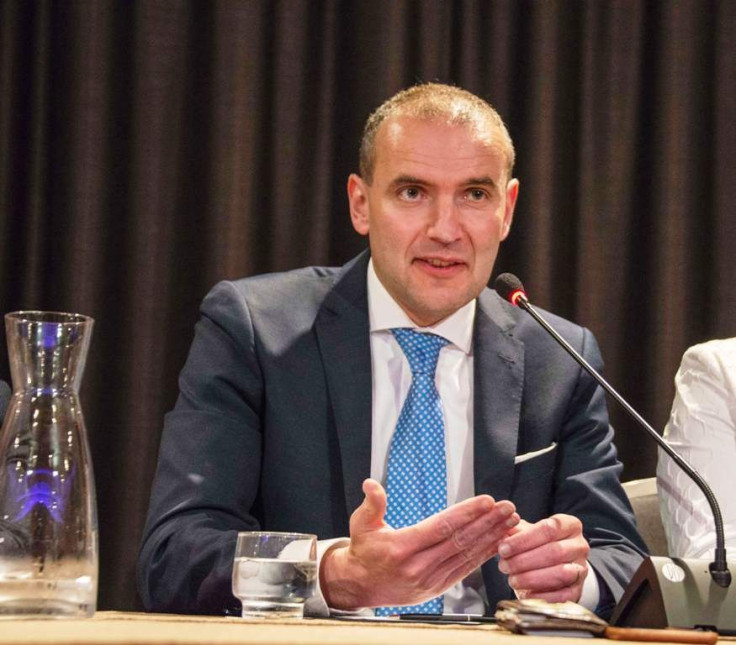Iceland President Elections 2016: Historian Guðni Jóhannesson Elected Amid Football Fever

Political commentator and historian Guðni Jóhannesson won Iceland’s presidential election Saturday after initial tallies showed him getting 37.7 percent of the vote. Officials had been concerned about possible low voter-turnout as Iceland’s football team and many fans are in France for the ongoing Euro 2016 soccer tournament.
“All the votes have not been counted, but I think we have won,” Jóhannesson said after 32 percent of ballots were counted, Agence France-Presse reported.
The 47-year-old, who has no party affiliation, was followed by businesswoman Halla Tómasdóttir who garnered 29.9 percent votes. Former conservative prime minister and central bank governor Davíð Oddsson received 13.2 percent votes. Oddsson was perceived as Jóhannesson’s closest rival throughout most of the presidential campaign. A total of nine candidates were running for the post.
Jóhannesson, who has never held public office before, will replace Ólafur Ragnar Grímsson, the fifth president of the country who has been in office since 1996.
During his campaign, Jóhannesson told supporters he would modernize the political scenario and bring in citizen-initiated referendums. He also vowed to restore people’s faith in the political system, which has been marred by scandals and financial troubles.
Iceland’s presidency is a largely ceremonial post, while the real political power is wielded by the prime minister. The election comes at time when some of the country’s political leaders were implicated in the Panama Papers leak.
Sigmundur Davíð Gunnlaugsson was forced to resign as Iceland’s prime minister after he and his wife were named in the massive data leak in April. Gunnlaugsson and his wife reportedly bought a company in 2007 from the Panama-based law firm Mossack Fonseca, which is at the center of the exposé, through the Luxembourg arm of Landsbanki, considered one of Iceland’s three major banks. At the time, the couple was living in the United Kingdom and used Wintris Inc., an offshore company in Panama, to invest profits from the prime minister's wife’s sale of shares in her family business.
Following this, Iceland witnessed protests by over 20,000 people, which, for a country with population of about 330,000, is a significantly large number.
Jóhannesson reportedly said his first act as president would be to travel to France to support Iceland’s team in their second round match against England Monday.
About 10 percent of the island nation’s population is believed to be in France for Euro 2016. In order to get their soccer players to vote Saturday, the Icelandic consulate in France flew ballot papers to its team’s hotel in Annecy in southeastern France. However, similar provision were not made for Icelandic fans in France, BBC reported.
© Copyright IBTimes 2024. All rights reserved.





















